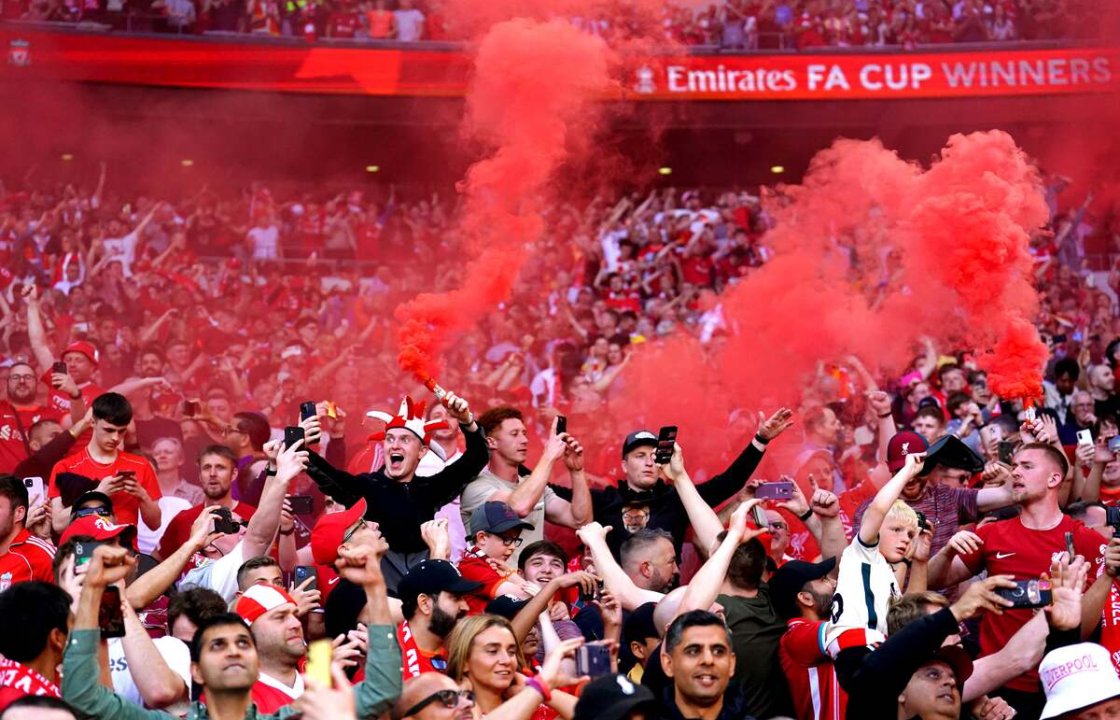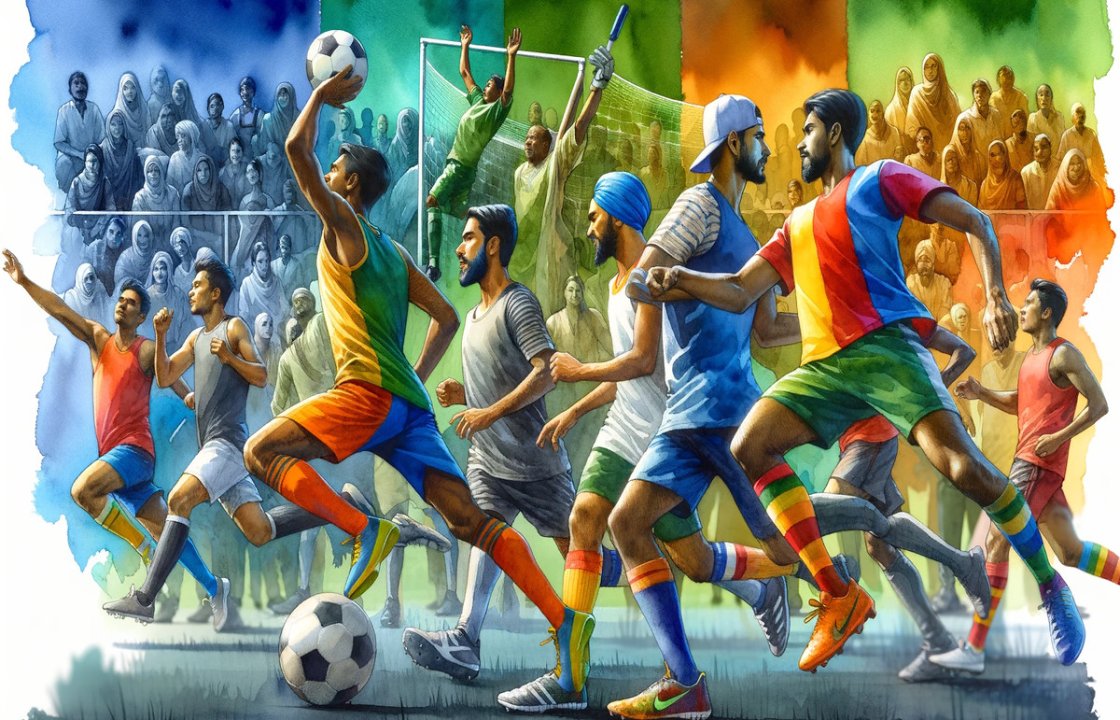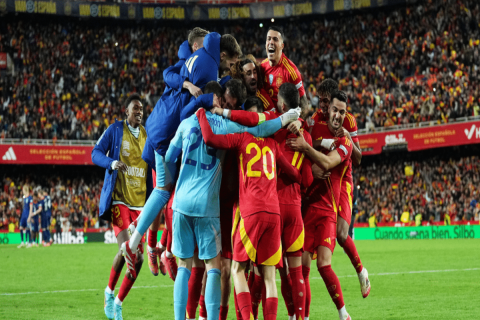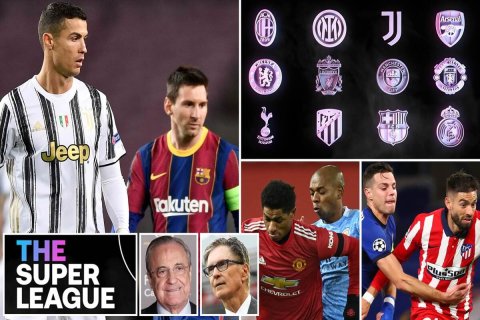In today’s globalized soccer world, fans are no longer loyal to a single club — they are passionate followers of multiple leagues, embracing a more diverse, international love for the game.
The Globalization of Soccer Fandom
The modern soccer fan has evolved. Gone are the days when loyalty was passed down from generation to generation for a single local club. Today’s supporters are more global, informed, and connected than ever before. The digital revolution, social media, and international broadcasting have completely reshaped how fans experience soccer. A recent study revealed that 66% of fans follow multiple leagues, marking a fundamental shift in the culture of the sport.
This transformation reflects the reality of a world where a Premier League game in London, a LaLiga showdown in Madrid, and an MLS match in Los Angeles are all accessible within the same weekend — or even within the same day. Fans no longer need to choose one. They can admire Manchester City’s tactical brilliance, Barcelona’s creative style, and Inter Miami’s star power simultaneously. The rise of streaming platforms has made it effortless to enjoy the best of every competition, breaking the barriers that once limited fandom to geography.
Technology: The Gateway to Global Fan Loyalty
The digital age has been the great equalizer for global soccer fandom. With streaming services and social media platforms, fans have instant access to matches, highlights, statistics, and behind-the-scenes content from any corner of the world. This accessibility has fostered a more diversified loyalty, where fans build connections with players, clubs, and leagues based on style of play, culture, and storytelling, rather than birthplace or proximity.
A teenager in Japan can support Arsenal, follow Real Madrid, and admire LAFC without any contradiction. Platforms like YouTube, TikTok, and X (formerly Twitter) have allowed fans to stay updated and emotionally connected to multiple teams simultaneously. They watch interviews, analyze tactics, and engage in online discussions that fuel their passion for different leagues.
Technology also allows fans to engage in fantasy leagues, interactive match predictions, and gaming platforms like FIFA or EA FC, where they can build their own dream teams with players from every competition. This digital interaction cultivates a multi-league identity that feels both personal and global.

The Rise of the “Multi-League Fan”
The “multi-league fan” represents the future of soccer fandom. These supporters value diversity of experience and are less interested in blind loyalty than in the quality and excitement of the game itself. They recognize that each league offers something unique: the intensity of the Premier League, the flair of LaLiga, the tactical discipline of Serie A, the youth development of the Bundesliga, and the growth and entertainment of MLS.
This doesn’t mean that passion has diminished. On the contrary, fans are now more informed, emotionally engaged, and open-minded. They can appreciate different styles, cultures, and footballing philosophies without being confined to one identity. Following multiple leagues provides a richer and more complete understanding of the sport, creating a new kind of fan who values the global nature of soccer above all.
Moreover, this trend aligns with the growing mobility of players and managers across leagues. When stars like Lionel Messi move from LaLiga to MLS or Jude Bellingham transitions from the Bundesliga to Real Madrid, they bring their global fan bases with them. Supporters follow players across borders, strengthening emotional ties with multiple leagues instead of one.
The Role of Social Media in Shaping Modern Loyalty
Social media has turned fans into active participants in the global soccer conversation. Platforms like Instagram and TikTok have made it possible for clubs and players to connect with supporters on a personal level. A fan might follow Real Madrid’s official account for match updates, Chelsea’s behind-the-scenes videos, and Inter Miami’s player interviews — all within the same feed.
This constant stream of content keeps fans engaged beyond the 90 minutes of play. They experience the human side of players, the stories behind clubs, and the emotions that define the sport. This emotional accessibility drives fans to diversify their loyalty, forming emotional bonds with several clubs across leagues.
The era of global influencers in soccer has further amplified this trend. Players like Cristiano Ronaldo, Neymar, and Kylian Mbappé are no longer tied to a single club identity — they are global brands whose appeal transcends borders. Their personal brands attract fans to multiple leagues, as supporters follow their idols wherever they go.
Cultural Exchange and Identity Through Soccer
Soccer has become a tool for cultural connection. Fans no longer see leagues as competitors but as chapters of the same global story. Supporting multiple leagues allows fans to appreciate different cultural perspectives — from the passion of South American football to the structure of European leagues and the ambition of North American soccer.
This cultural exchange enriches the fan experience. Following multiple leagues exposes fans to different languages, traditions, and styles of play, building a deeper appreciation for the global community of soccer. It also reflects a generation that values inclusivity, diversity, and exploration — qualities that define modern fandom.
At the same time, this trend challenges clubs to rethink how they build loyalty. Instead of expecting lifetime devotion, they must earn attention through engagement, storytelling, and authenticity. The clubs that adapt to this new reality — by offering immersive digital experiences and connecting emotionally with fans — will thrive in the age of multi-league loyalty.

The Future of Fan Loyalty
As soccer continues to evolve, fan loyalty will become more fluid, dynamic, and inclusive. Rather than replacing traditional fandom, this diversification expands it. Fans can still hold a deep love for their home club while enjoying the beauty of global competition. The concept of exclusivity in fandom is fading, replaced by a culture that celebrates curiosity and connection.
In the future, fans will not only follow multiple leagues — they will participate in them. Virtual reality, interactive platforms, and global fan communities will make it possible to engage with the sport like never before. Soccer will continue to be a universal language, and fans will be its most important ambassadors, weaving together stories from every corner of the world.
Connection to SIA Academy
At SIA Academy, we understand and embrace this global shift in soccer culture. Our players and coaches come from diverse backgrounds and follow different leagues, styles, and philosophies. This diversity enriches the environment, encouraging open-mindedness and global awareness. By analyzing games from LaLiga, Premier League, Serie A, and MLS, our athletes gain a comprehensive understanding of tactical and cultural differences that shape modern soccer.
We promote the same multi-league mindset that today’s fans embody — one that values learning from every style of play and every football culture. Just as fans diversify their loyalty to grow as followers of the game, our players at SIA Academy diversify their knowledge to grow as complete, adaptable footballers ready for the global stage.






